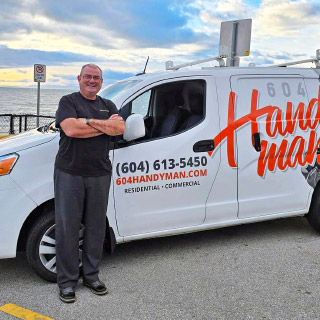
In the rapidly expanding home services industry, Local Handyman has transformed the traditional handyman service model into a sophisticated business opportunity that attracts investors and entrepreneurs alike. Since taking over the franchise 18 months ago, CEO and Co-owner Colin Sprake and his business partner, Nathan Neels, have completely reimagined what was once a simple man-in-a-van concept and turned it on its head, creating a scalable enterprise with remarkable flexibility and growth potential. By Tamara Rahoumi
In the rapidly expanding home services industry, Local Handyman has transformed the traditional handyman service model into a sophisticated business opportunity that attracts investors and entrepreneurs alike. Since taking over the franchise 18 months ago, CEO and Co-owner Colin Sprake and his business partner, Nathan Neels, have completely reimagined what was once a simple man-in-a-van concept and turned it on its head, creating a scalable enterprise with remarkable flexibility and growth potential.
“We are the opposite of what the company used to be,” said Sprake. “We’re not selling to handymen; we want to sell to business owners and investors who see the opportunity to start with one van and grow to four vans in a 12-month period, building a proper business.”
In other words, the current model of Local Handyman is for entrepreneurs looking to manage and grow an operation, not those looking to be the actual service providers.
In rethinking the business model for entrepreneurs and investors, Sprake and his team built in a level of flexibility that would appeal to different types of businesspeople, depending on how hands-on they wanted to be.
“There’s multiple ways you can build this,” Sprake explained. “You can be fully present, semi-absent or fully absent. That’s a big attraction for potential investors who want something to be part of their portfolio but may not have time to run it themselves.”
As a seasoned entrepreneur and investor himself, Sprake has intentionally designed every aspect of the Local Handyman model to maximize returns while minimizing typical franchise headaches. For example, the company operates with a streamlined overhead structure. There’s no brick-and-mortar requirement, and vans get stored at the handymen’s homes, eliminating costly facility expenses. This approach isn’t just cost-effective; it directly translates to impressive financial metrics that appeal to business-minded investors with ROI timeframes of 12 to 18 months and profit margins that grow from 20% at startup to 35% when fully operational.
However, the true differentiator for Local Handyman may be its unparalleled business mentorship built directly into the franchise package. Drawing on his extensive experience in coaching, Sprake has integrated high-level guidance into the standard franchise agreement. While he typically charges private clients $150,000 per year for his mentorship services, this is something that Local Handyman franchisees get as a part of their program.
Additionally, as part of an exclusive Founders Program, the first 50 Local Handyman franchisees will benefit from ongoing mentorship from Sprake.
“They will get continual access to me for the life of the business, as opposed to those that come on after that will get to meet me, but they’ll be coached, trained and mentored by other team members,” he explained.
This early-adopter advantage creates both urgency and exceptional value for those getting in on the ground floor.
With an industry that shows no signs of slowing down, where homeowners increasingly lack the time, skills or desire to handle maintenance themselves, Local Handyman is an opportunity for savvy entrepreneurs and investors to build on that momentum. This reimagined franchise model offers the perfect vehicle for those who recognize both the untapped potential of the handyman industry and the value of a business system purpose-built for scalability and impressive returns.
Tamara Rahoumi

